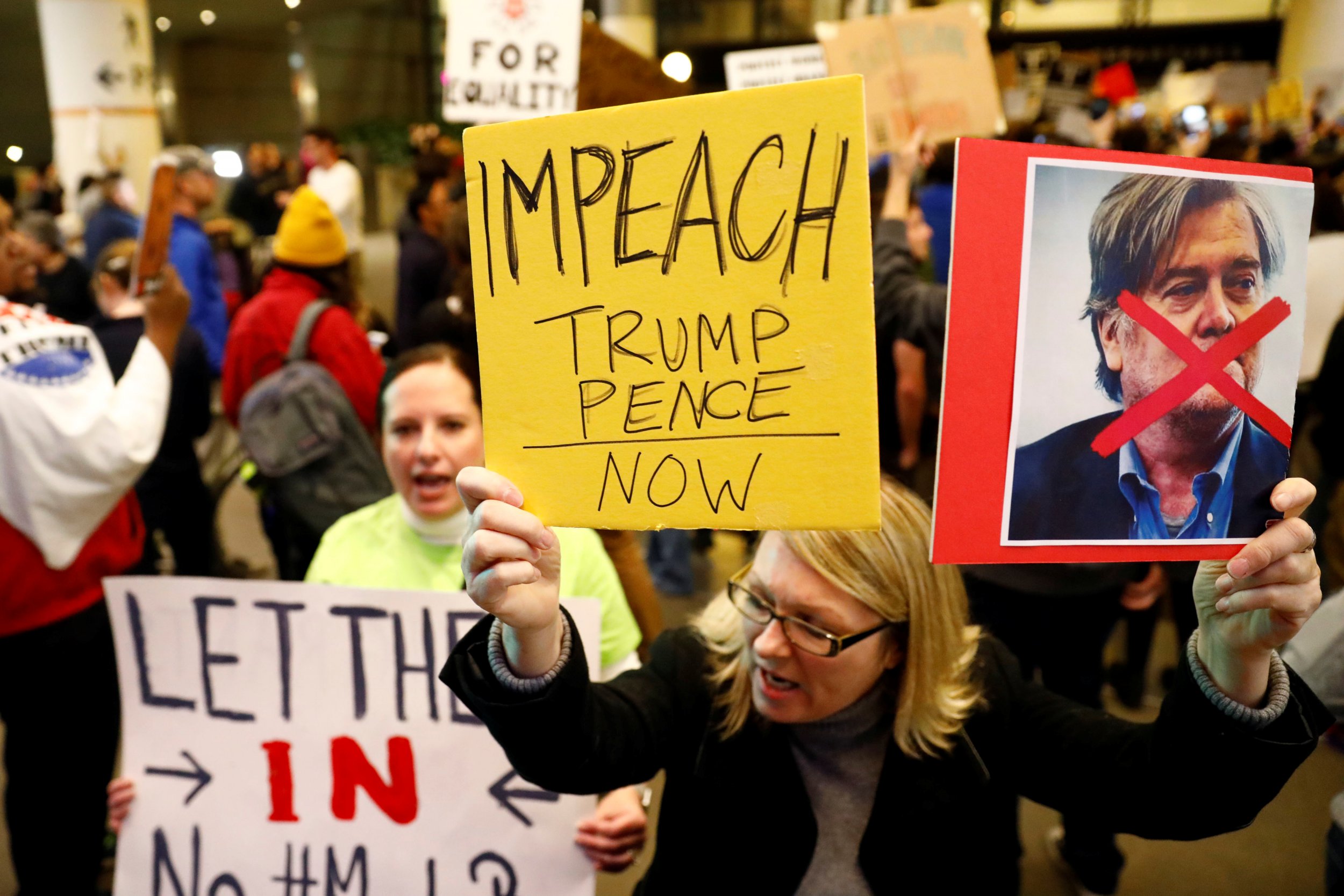Impeach: A Political Firecracker that Can Derail Presidencies
Imagine your country's leader, the one you entrusted with the highest office, facing a public trial for serious offenses. That's the essence of impeachment, a dramatic and consequence-heavy process that can topple mighty presidents. Join us as we explore the fascinating world of impeachment, its history, its implications, and the controversies surrounding it.
Grounds for Impeachment: Crimes and High Misdemeanors
Impeachment is not a trivial matter, it's reserved for grave offenses. The U.S. Constitution broadly defines impeachable offenses as "Treason, Bribery, or other high Crimes and Misdemeanors." Treason and bribery are relatively straightforward, but "high crimes and misdemeanors" is somewhat ambiguous, allowing for wide interpretation.
Historically, impeachable offenses included actions that threatened the integrity of the presidency or the republic itself. Former President Andrew Johnson's impeachment charges, for instance, stemmed from his defiance of Congress during Reconstruction.
The Impeachment Process: A Two-Step Procedure
Impeachment is a two-step process. First, the House of Representatives votes on Articles of Impeachment, specific charges against the president. If the majority of the House supports impeachment, the process moves to the Senate.
The Senate holds a trial presided over by the Chief Justice of the Supreme Court. Senators act as jurors, listening to evidence and arguments from both sides. Two-thirds of the Senate must vote to convict the president, who is then removed from office.
Historical Impeachments: A Rare but Consequential Event
Despite the constitutional provision, presidential impeachments have been relatively rare in U.S. history. Only four presidents have been impeached: Andrew Johnson, Bill Clinton, Donald Trump (twice), and Joe Biden. Only Johnson and Trump were acquitted by the Senate.
Impeachments have often been highly partisan affairs, with political motivations playing a significant role. Some argue that the impeachment process has become a political weapon, while others maintain it's a necessary check on presidential power.
The Case of Bill Clinton: Impeachment Overshadowed by Politics
Bill Clinton's impeachment in 1998 stemmed from charges of perjury and obstruction of justice related to his affair with Monica Lewinsky. The House of Representatives impeached him on both charges, but the Senate acquitted him on both counts.
Clinton's impeachment was highly controversial, with many arguing it was politically motivated and did not rise to the level of an impeachable offense. The experience left a lasting impact on American politics, raising questions about the role of personal morality in presidential conduct.
The Rise of Partisanship: Impeachment as a Political Battleground
In recent years, impeachment has become increasingly partisan. The impeachments of Donald Trump and Joe Biden were deeply divided along party lines. Critics argue that these proceedings were more about political maneuvering than serious offenses.
The rise of partisanship in impeachment proceedings raises concerns about the process's integrity and its ability to serve as a non-partisan check on presidential power.
Constitutional Questions: Balancing Power of Impeachment and Presidential Authority
The impeachment process has raised several constitutional questions, particularly regarding the balance of power between the executive and legislative branches. Some argue that the House of Representatives has too much power to impeach a president, while others maintain that the Senate has too much discretion to acquit.
These constitutional questions continue to be debated, highlighting the importance of striking a balance between holding presidents accountable and protecting the separation of powers.
Table: Presidential Impeachments in U.S. History
| President | Date of Impeachment | Charges | Outcome |
|---|---|---|---|
| Andrew Johnson | 1868 | Violating the Tenure of Office Act | Acquitted |
| Bill Clinton | 1998 | Perjury and obstruction of justice | Acquitted |
| Donald Trump | 2019 | Abuse of power and obstruction of Congress | Acquitted |
| Donald Trump | 2021 | Incitement of insurrection | Acquitted |
| Joe Biden | 2023 | Abuse of power and obstruction of justice | Impeachment passed by the House, trial in progress |
Role of Public Opinion: Impeachment in the Court of Public Perception
Public opinion plays a significant role in impeachment proceedings. If a president loses the support of the people, it becomes more difficult for them to remain in office, regardless of the outcome of the impeachment trial.
Presidents have often used impeachment proceedings to rally their supporters and paint themselves as victims of political persecution. Public opinion can also influence the actions of elected officials, who may be hesitant to support impeachment for fear of backlash from their constituents.
Conclusion: A Double-Edged Sword of Presidential Accountability
Impeachment is a powerful tool that can hold presidents accountable for serious offenses. However, it is also a double-edged sword that can be used for political purposes and potentially undermine the separation of powers.
The increasing partisanship surrounding impeachment raises concerns about its future effectiveness. Striking a balance between presidential accountability and protecting the integrity of the process remains a critical challenge for American democracy. Impeachment will undoubtedly continue to be a topic of debate and controversy in the years to come, as it remains a fundamental and potentially transformative mechanism in our political system.



